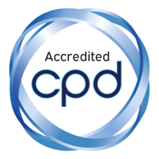Briefing / Ethical standards: roles and responsibilities of the NHS accountant
The pressure to deliver more and more healthcare services, and produce a balanced financial position means that the requirements for NHS finance professionals to maintain ethical standards is more important than ever.
Finance professionals have many opportunities to use their discretion. While some transactions are straightforward, the preparation of financial reports and estimates requires judgement. Also, as system working increases, there can be the conflict between doing the right thing for the system and the public compared to the impact on your own organisation.
The finance function has a crucial role to play in the NHS. As well as carrying out the day-to-day financial processes for large organisations, finance professionals are integral to governance and accountability. It is important to understand and consider the pressures they face, their professional responsibilities and how they can be supported. Professional standards and codes of conduct are vital to help determine what should or should not be decided when faced with an ethical dilemma.
In the NHS, finance staff have a responsibility to meet both the regulatory standards of the NHS and the ethical standards of professional bodies. The ethical standards and safeguards are in place to support accountants when they face ethical dilemmas. Transparency in process, information and actions are key.
This briefing, updated in July 2022, explores the ethical dilemmas facing NHS finance staff; provides a reminder of ethical requirements; and sets out what NHS finance staff can do to ensure ethical standards are met.
Finance professionals have many opportunities to use their discretion. While some transactions are straightforward, the preparation of financial reports and estimates requires judgement. Also, as system working increases, there can be the conflict between doing the right thing for the system and the public compared to the impact on your own organisation.
The finance function has a crucial role to play in the NHS. As well as carrying out the day-to-day financial processes for large organisations, finance professionals are integral to governance and accountability. It is important to understand and consider the pressures they face, their professional responsibilities and how they can be supported. Professional standards and codes of conduct are vital to help determine what should or should not be decided when faced with an ethical dilemma.
In the NHS, finance staff have a responsibility to meet both the regulatory standards of the NHS and the ethical standards of professional bodies. The ethical standards and safeguards are in place to support accountants when they face ethical dilemmas. Transparency in process, information and actions are key.
This briefing, updated in July 2022, explores the ethical dilemmas facing NHS finance staff; provides a reminder of ethical requirements; and sets out what NHS finance staff can do to ensure ethical standards are met.
Related content
Costing revolution summit 2024
This event focused primarily on the use of costing information and the importance of working with others to turn data into business intelligence.
HFMA London Branch: Affinity Connect - your financial wellbeing
This course has been designed to identify key topics that will help employees strengthen their financial wellbeing.
